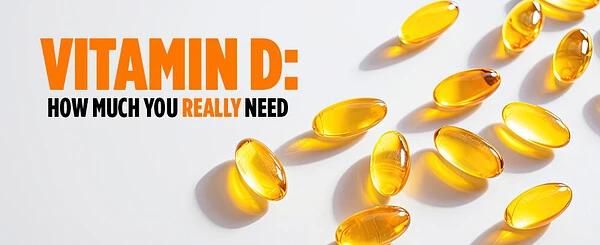Oats and Beta Glucan: Unveiling the Optimal Source for Health Benefits
Oats are known to contain a prebiotic, beta glucan, which has been associated with several health benefits such as fat loss and enhanced immunity. However, there exists a superior source for reaping these advantages.
The Media's Take on Health and Fitness
We often peruse health and fitness articles in the mainstream media. It is rather amusing to witness them report on a "brand - new discovery" that T Nation had already covered a decade ago. Recently, an article on oatmeal and the prebiotic fiber beta glucan (available for purchase on Amazon) caught our attention. While the writer had many points correct, a crucial aspect was misrepresented.
Beta Glucan: Understanding Its Functions
Oats, along with a select few other foods, contain beta glucan. This soluble fiber is recognized for the following physiological effects:
Metabolic and Weight - related Benefits: An increased intake of beta glucan is linked to fat loss, improved metabolic health, and enhanced insulin sensitivity.
Cholesterol and Blood Sugar Regulation: In the digestive tract, beta glucan forms a gel - like structure. Its viscosity enables it to bind bile acids (which are subsequently excreted), thereby lowering LDL (low - density lipoprotein or "bad") cholesterol levels by reducing cholesterol reabsorption. Additionally, it slows down carbohydrate absorption, minimizing glucose spikes and regulating blood sugar levels.
Gut Health Support: Beta glucan serves as a nutrient for beneficial gut bacteria. It is fermented by gut microbiota, resulting in the production of short - chain fatty acids, such as butyrate, which are essential for maintaining gut health.
Immune System Enhancement: Beta glucan activates immune cells, including macrophages, neutrophils, and natural killer (NK) cells. This activation bolsters the body's capacity to prevent and combat infections, particularly respiratory illnesses.
Cancer - related Benefits: Emerging research indicates that beta glucan may enhance immune surveillance against tumor cells. By reducing oxidative stress, it could potentially contribute to cancer prevention.
Skin Health Improvement: Due to its ability to stimulate immune responses and promote healthy tissue replenishment, beta glucan improves skin health. Some companies even market it as a beauty product.
Beyond Oatmeal: The Search for Superiority
Consuming a bowl of oatmeal is certainly not amiss. Nevertheless, if one's primary objective is to obtain the full spectrum of beta glucan benefits, relying solely on oatmeal may fall short.
Processing and Bioavailability in Oats
The degree of oat processing significantly impacts the bioavailability of beta glucan. More processed oats, especially those with smaller particle sizes (such as finely milled oats or "instant" oatmeal), are less effective at forming a viscous gel, thereby reducing the bioavailability of beta glucan. Conversely, less processed oats, like steel - cut or rolled oats, retain a higher molecular weight and viscosity, which leads to better functionality.
Absorption Challenges in Oats and Yeast - derived Beta Glucan
Another significant issue is the relatively low bioavailability of oat and yeast - derived beta glucan. The gastrointestinal tract struggles to properly digest the thick cell walls of grains like oats, limiting access to beta glucan. Specifically, the most desirable form of beta glucan is beta - 1,3 - glucan.
The Algal Advantage
Beta - 1,3 - glucan is extracted from Euglena gracilis, a species of algae. This form of beta glucan has no chemical side branches or particulate matter. Its cell wall is much thinner, facilitating easier absorption and utilization. Moreover, the concentration of beta glucan in algal cell walls exceeds 95%, far higher than that found in oats or yeast.
In conclusion, while oatmeal, preferably in its rolled or steel - cut form, can be part of a healthy diet, supplementing with algae - derived beta glucan is advisable. Each serving of Biotest Beta Glucan Immune - Boosting Fiber (available on Amazon) contains 600 mg of beta - 1,3 - glucan extracted from Euglena gracilis.





